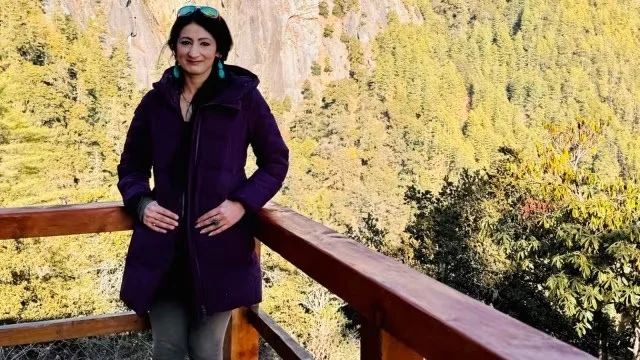An Indian-origin professor from the UK claims she was denied entry into India despite an invitation from the Karnataka government, sparking debates on immigration policies and academic freedom.
BANGALURU- Dr. Nitasha Kaul, a Kashmiri Pandit academic based in the United Kingdom, found herself at the center of a controversy when she was refused entry into India despite possessing a valid visa and an invitation from the Karnataka government. The incident has raised questions about the treatment of scholars critical of government policies and the broader implications for cross-border academic exchange.
According to reports from ThePrint, Dr. Kaul, a professor at a UK university, was scheduled to participate in the Bengaluru Poetry Festival. However, upon arrival at the Bengaluru airport, she was informed that her e-visa had been canceled without explanation. Despite presenting documentation, including an invitation from the Karnataka government, she was not allowed to enter the country.
In an interview with Livemint, Dr. Kaul expressed shock and disappointment at the treatment she received, stating that she felt targeted because of her political views. She emphasized the need for transparency in immigration procedures and urged authorities to respect academic freedom.
The incident has drawn condemnation from various quarters, with many academics and activists expressing solidarity with Dr. Kaul. The Indian Express reported on the growing concern over the shrinking space for dissent in India and the potential chilling effect on intellectual discourse.
Dr. Kaul’s case is not an isolated incident but rather indicative of a broader trend of governments worldwide restricting the movement of scholars and activists critical of their policies. The targeting of academics based on their political beliefs raises serious concerns about freedom of expression and academic autonomy.
Furthermore, the treatment of Dr. Kaul highlights the challenges faced by Kashmiri Pandits, both within India and abroad. As a member of the diaspora, Dr. Kaul’s experiences underscore the complexities of identity and belonging in the context of the Kashmir conflict.
In conclusion, the denial of entry to Dr. Nitasha Kaul raises troubling questions about the state of academic freedom and democratic values in India. It serves as a reminder of the importance of protecting dissenting voices and upholding principles of free speech and intellectual inquiry. As the international community watches closely, the actions taken in response to this incident will undoubtedly have far-reaching implications for the future of academic exchange and democratic discourse.

